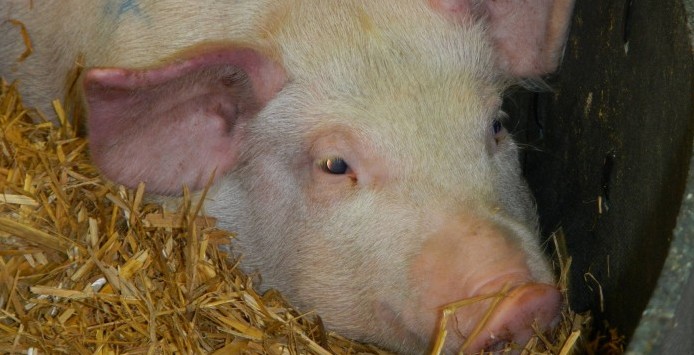African swine fever (ASF) has been detected across the Dominican Republic, with ‘tens of thousands of pigs’ to be slaughtered control the virus, according to a Reuters report.
So far, two outbreaks in separate provinces involving more than 800 animals have been officially confirmed by the OIE.
However, it is now reported that the DR authorities sent 389 samples from pig farms across the country to US laboratories following the widespread deaths of animals in three provinces in the last month. This resulted in the detection of outbreaks in 11 of the country’s 32 provinces, the DR authorities said on Monday.
The authorities said the only way to stop the disease is to cull the entire pig population in farms where it has been detected. Fernando Duran, administrator of the state-run Banco Agricola, told a news conference the government will pay pig farmers the market price of each animal slaughtered, Reuters reported.
Officials are still investigating the origin of the outbreak and have not said how many pigs will be slaughtered.
Rafael Abel, head of the agriculture committee in the lower house of Congress, last week estimated the slaughter would result in economic losses of around $180 million.
The outbreak in the Caribbean nation has put the US on high alert. Paul Sundberg, executive director of the Swine Health Information Centre in the US, said the proximity to the US was a ‘concern’.
APHA assessment
The UK’s Animal and Plant Health Agency (APHA) has published a preliminary assessment of the first two confirmed outbreaks, one of which was just 20km from Haiti’s border. Domestic control measures including zoning, increased surveillance, movement controls and quarantine have been applied around the outbreaks.
APHA noted that the is currently dealing with an outbreak of classical swine fever (CSF) and pork and pork products from the Dominican Republic are therefore currently prohibited from entry to the US.
Additionally, US Customs is increasing inspections of flights from the DR to ensure travellers do not bring prohibited products to the country. It will also be ensuring that waste from these airplanes are properly disposed of to prevent the transmission of ASF.
It said the outbreak was a further example of the geographical jumps that have spread ASF to (and within) Europe, Asia and Oceania since 2007 and demonstrates the potential for further spread of ASF into and within the domestic pig populations globally.
The current risk of ASFV entry to the UK is still considered to be medium, despite the spread of ASF to the DR.
However, APHA added: “Illegal importation of infected pork meat from affected parts of the Americas, presents a concerning route of entry of ASFV into the UK.
“There are also ongoing concerns around infected pork products originating from affected countries entering the UK in passenger luggage and the subsequent waste being discarded in areas where wild boar or domestic pigs could access them.’
You can read the APHA assessment, which includes advice to pig producers on keeping ASF out their herds, HERE




